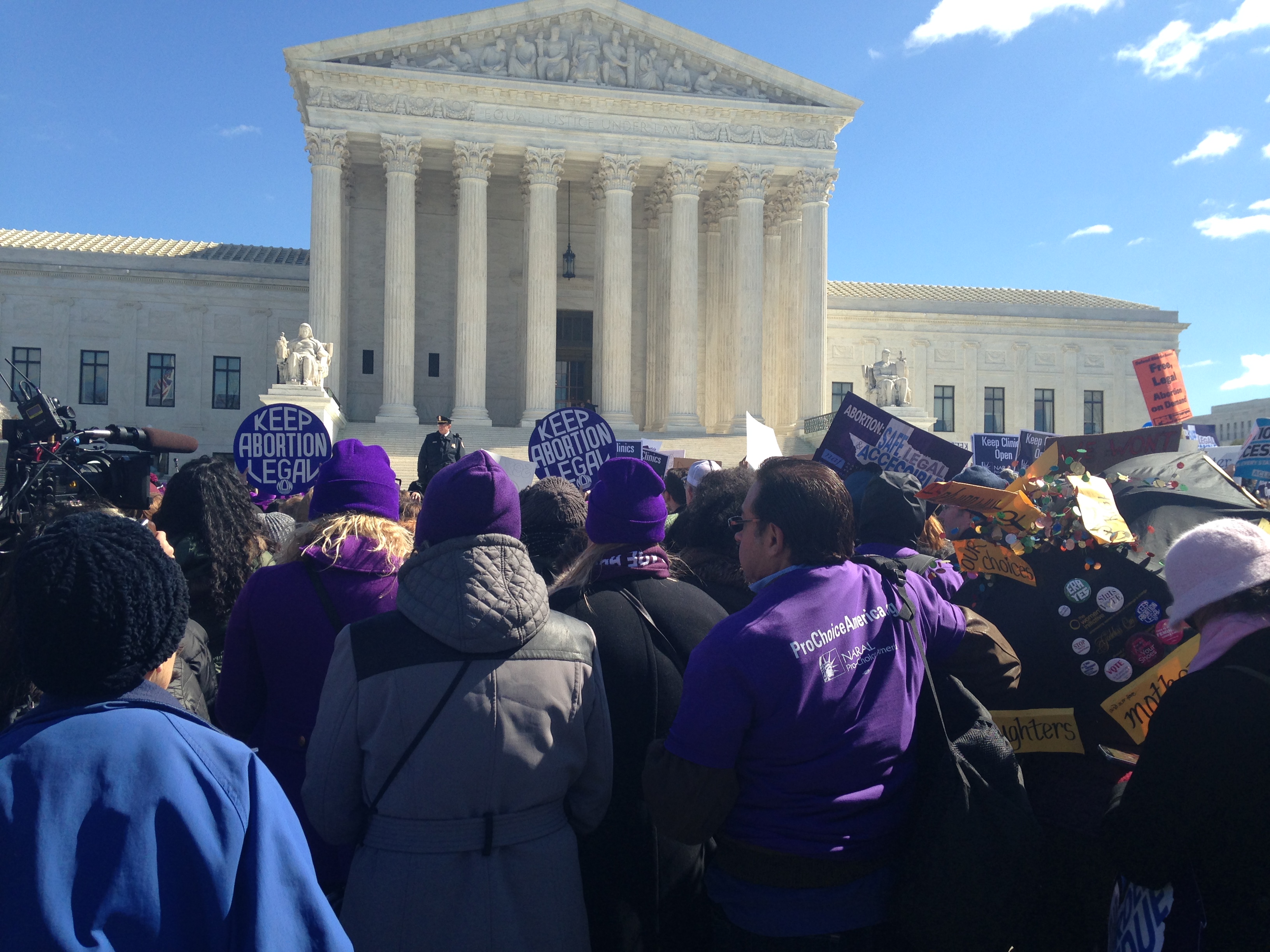Reproductive rights and justice advocates have been nervously awaiting the decision in Whole Woman’s Health vs. Hellerstedt since the legal case against Texas’ massive and extremely damaging HB2 legislation began in 2013. Today, the Supreme Court handed down a major win for abortion access in a 5-3 decision.
Since Roe vs. Wade was passed in 1973—establishing a constitutional argument for the right to abortion in this U.S.—the legislative and legal landscape has primarily moved against abortion access, allowing restriction after restriction to stand. Waiting periods. Mandatory ultrasounds. Trimester-based limitations. Banning certain procedures. Today represents one of the biggest legal advancements of the right to access abortion since Roe.
The decision, written by Justice Stephen Breyer, addressed two of the regulations the Texas legislation placed on abortion providers. One of them required that providers have admitting privileges at a local hospital, and the other required that their facilities meet the standards of an ambulatory surgical center. Both restrictions have presented significant obstacles for providers in Texas, and many have closed in the wake of the law. Supporters of HB2 have claimed that they are trying to protect women’s health with these requirements.
The Supreme Court’s response:
We conclude that neither of these provisions offers medical benefits sufficient to justify the burdens upon access that each imposes. Each places a substantial obstacle in the path of women seeking a previability abortion, each constitutes an undue burden on abortion access, Casey, supra, at 878 (plurality opinion), and each violates the federal Constitution.
This decision is a best-case scenario for advocates of abortion rights. It will allow the remaining abortion clinics in Texas to stay open, and it may pave the way for ones that have closed to re-open. It also means that similar laws that have been passed around the country are now unconstitutional, and neuters two major legislative tactics used by the anti-choice movement.
